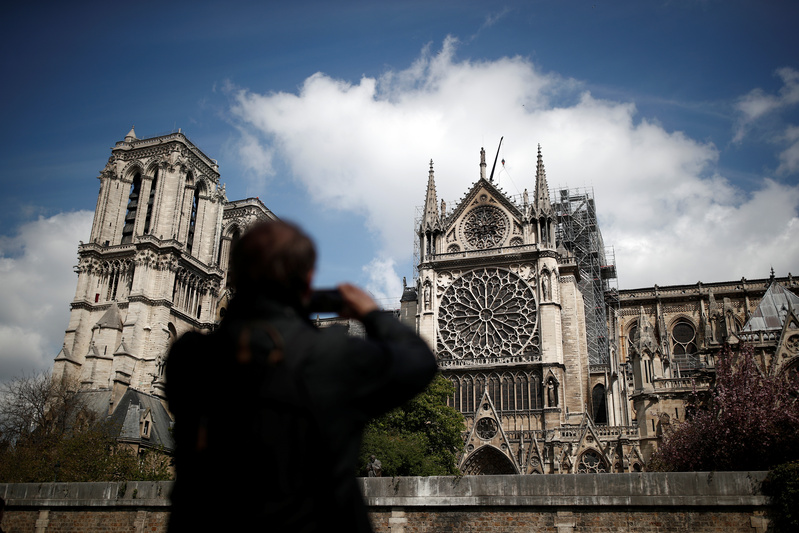
The tragedy of Paris is symbolic: if we don’t accelerate the european integration’s process, Europe falls. Let’s keep this in mind on May 23
Notre Dame aflame, hours of panic devastated this April evening, as we sat glued to the tragic images of the collapse of the tallest steeple. Notre Dame is not just of artistic value, it carries historic, political, religious and cultural significance. It’s a symbol that has united us all, with its stunning beauty, its fascinating position in the heart of Paris, in the centre of the Europe we love, a compulsory destination for anyone leaving their own country at least once in their lifetime.
The French lining the banks of the Seine were crying, but we were all French on that evening… or at least most of us…
We must bear this tragic evening in mind so we realise how fragile the symbols of our communities are, if we don’t look after them. Much like our continental institutions, which have often been blessed in Notre Dame during the course of history, they too need to be protected, upgraded, revived, so they can promote the progress of our European society, made up of many national cultures, but which nevertheless believe in a shared present and future, and many shared symbols.
A decade of almost unparalleled crisis has undermined the European citizen’s trust in the Union’s institutions: since 2007 it has dropped by as much as 15 percentage points (from 57% to 42%) but the same phenomenon is overwhelming national institutions to a greater extent (they’ve collapsed to 35%!). The impact of the crisis has scuttled our beliefs, and not just in the economy, but even in our social cohabitation. The all-consuming recession has caused a drastic reduction in employment, with disastrous repercussions on youth employment and worst still on all forms of permanent occupation. The countries in the south of Europe have not only recorded the most significant fall of all its indicators, they are also taking much longer to recover than the northern countries. So? What can we do?
The isolationist recipes put forward by many of the new improvised leaders certainly won’t help. International cooperation, as I will explain more in detail in the editorial, is valuable and protects us against global crises.
I realise it may be counter-intuitive, but that’s why we need to rely on experts and not just common sense. Only very competent leaders will have the courage to make anti-cyclical and often unpopular choices, in the short term (but this is not always the case, unfortunately, as the recent past shows). Closing borders can give the impression of simplifying governance and therefore the solution of problems. But that’s not the case, especially in the time we’re living in right now, when the greatest problems are global: energy, climate change, financial crises, migrations. Drastic national measures give the impression of providing a fast and logical solution, but it’s the same as curing someone seriously ill with drugs: the relief is immediate, but soon things get worse and then it’s too late for any cure to be effective.
We must instead lead our 500 million voters to develope a new ability to compete, negotiate and focus, all goals that can be achieved with the best education, by promoting the boldest innovative processes, investing on scientific research and the mobility of the future. Only a strengthened cooperation in all these sectors can help drag Italy First, France First or Germany First out of the swamp. The Franco-German Statement in Mesenberg can be considered the first stone of a reboot of the European integration process, our only hope of perpetuating another 70 years of peace in Europe (a historical first), but also our chance of restoring growth and distributing wealth in a fairer and more inclusive fashion. Those who wish to join this historic journey, should vote for the parties that support it at the European elections on 23 – 26 May.
@GiuScognamiglio
This article is also published in the May/June issue of eastwest.
You can buy the magazine at newsstand or subscribe.
The tragedy of Paris is symbolic: if we don’t accelerate the european integration’s process, Europe falls. Let’s keep this in mind on May 23





